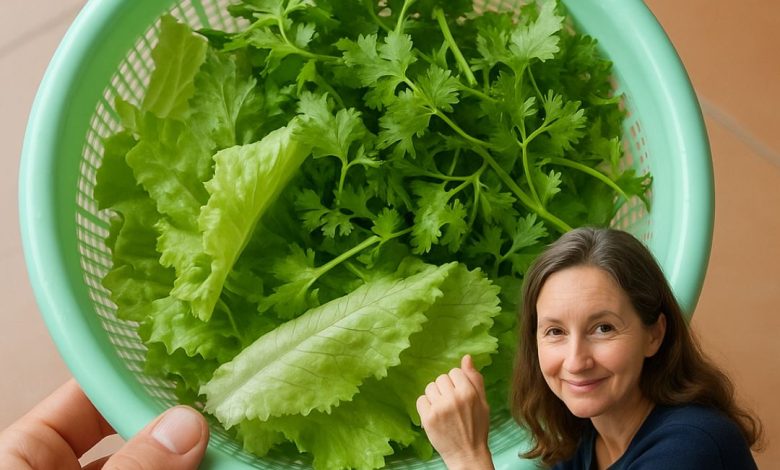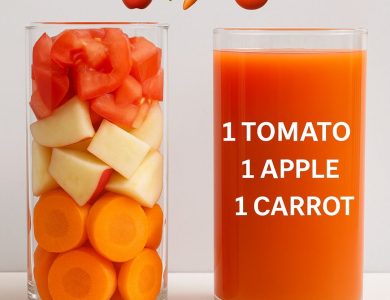8 Truths About Eating Raw Vegetables You Need to Know

Eating vegetables is crucial for maintaining good health, and while most of us are familiar with the benefits of cooked vegetables, raw vegetables can offer their own unique set of health advantages. Consuming raw veggies provides more nutrients, aids digestion, and may contribute to overall wellness in ways cooking simply can’t. However, there are certain facts and truths about eating raw vegetables that everyone should know. In this article, we explore 8 important truths about raw vegetables and why you might want to consider incorporating more of them into your diet.
1. Raw Vegetables Retain More Nutrients
One of the biggest reasons to eat raw vegetables is that they retain a higher level of nutrients than cooked ones. Some vitamins, particularly water-soluble vitamins like vitamin C and B vitamins, are sensitive to heat and can be destroyed or reduced during cooking. When you eat raw veggies, you get the full nutritional benefit of vitamins, minerals, and antioxidants, which can support your immune system, skin health, and overall vitality.
2. Aid in Digestion
Raw vegetables contain live enzymes that assist in breaking down food, which can support your digestive system. These enzymes help your body process and absorb nutrients more efficiently. Additionally, the fiber in raw vegetables acts as a natural digestive aid, promoting regular bowel movements, reducing constipation, and improving gut health overall.
3. Low in Calories but High in Nutrients
Raw vegetables are often low in calories, making them an excellent choice for those looking to maintain or lose weight. Despite being low in calories, they are rich in essential vitamins, minerals, and fiber, providing a lot of nutrients in every bite. Raw veggies make a great snack or addition to meals, providing all the nutrition you need without the added calories of processed snacks.
4. Boost Hydration
Many raw vegetables, such as cucumbers, lettuce, celery, and tomatoes, have a high water content. Eating these vegetables helps you stay hydrated and can contribute to your daily water intake. Proper hydration is vital for overall health, as it helps regulate body temperature, supports digestion, and promotes skin health.
5. Improve Skin Health
The antioxidants in raw vegetables, including vitamins A, C, and E, help protect the skin from oxidative stress caused by free radicals. These antioxidants are essential for reducing signs of aging, improving skin texture, and promoting a healthy complexion. Eating a variety of raw vegetables every day can help you achieve glowing, youthful skin.
6. Support Weight Loss and Metabolism
Eating raw vegetables can be beneficial for weight management due to their high fiber content, which promotes feelings of fullness and reduces overeating. Additionally, raw vegetables can increase your metabolism, helping your body burn fat more efficiently. Consuming raw veggies as part of a balanced diet can make it easier to achieve and maintain a healthy weight.
7. Raw Vegetables Can Be Detoxifying
Many raw vegetables, particularly leafy greens like kale and spinach, are natural detoxifiers. They help the body eliminate toxins and support liver function. The fiber in raw veggies also acts like a broom, sweeping out waste from the digestive tract and aiding in the detoxification process. Consuming raw vegetables regularly can help cleanse your body and keep you feeling energized.
8. May Improve Heart Health
Eating raw vegetables, particularly those high in potassium, such as tomatoes, cucumbers, and leafy greens, can support heart health. Potassium helps to regulate blood pressure, which in turn reduces the risk of heart disease. Raw vegetables are also rich in antioxidants, which can help lower inflammation and support cardiovascular function.
Which Raw Vegetables Are Best?
If you’re interested in adding more raw veggies to your diet, here are some excellent choices:
- Leafy Greens: Spinach, kale, arugula, and lettuce are all nutrient-packed options.
- Cruciferous Vegetables: Broccoli, cauliflower, and cabbage are high in fiber and antioxidants.
- Root Vegetables: Carrots, beets, and radishes are great sources of vitamins and minerals.
- Fruits: Although technically fruits, tomatoes and cucumbers are often treated like vegetables and are excellent when eaten raw.
Tips for Eating Raw Vegetables
- Wash Thoroughly: Always wash raw vegetables to remove dirt, pesticides, or bacteria. Consider using a natural vegetable wash or vinegar solution to clean them.
- Mix with Healthy Fats: Pair your raw veggies with healthy fats like olive oil, avocado, or nuts to help your body absorb fat-soluble vitamins (A, D, E, and K).
- Variety is Key: Eating a wide variety of raw vegetables ensures you get a broad spectrum of nutrients, so mix and match different types every day.
Conclusion
Raw vegetables are a fantastic addition to your diet, offering numerous health benefits that cooking just can’t replicate. From retaining more nutrients to improving digestion, supporting weight loss, and boosting heart health, eating raw vegetables is an easy and delicious way to enhance your overall well-being. So, the next time you reach for a snack or plan your meals, consider opting for fresh, raw veggies to nourish your body from the inside out.
By making raw vegetables a regular part of your diet, you can take full advantage of their health-promoting properties and enjoy a vibrant, energetic lifestyle. Start today by adding more raw veggies to your meals and discover the benefits for yourself!





